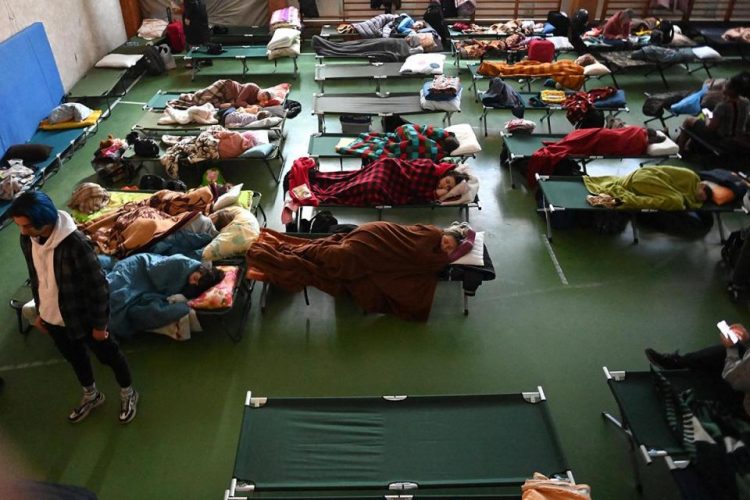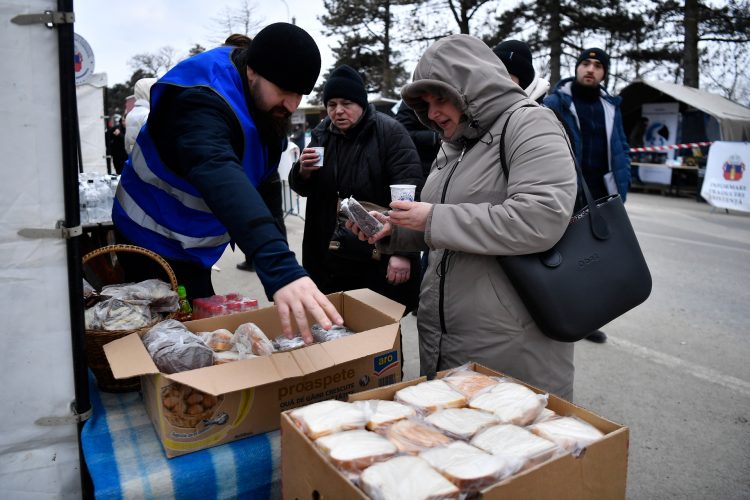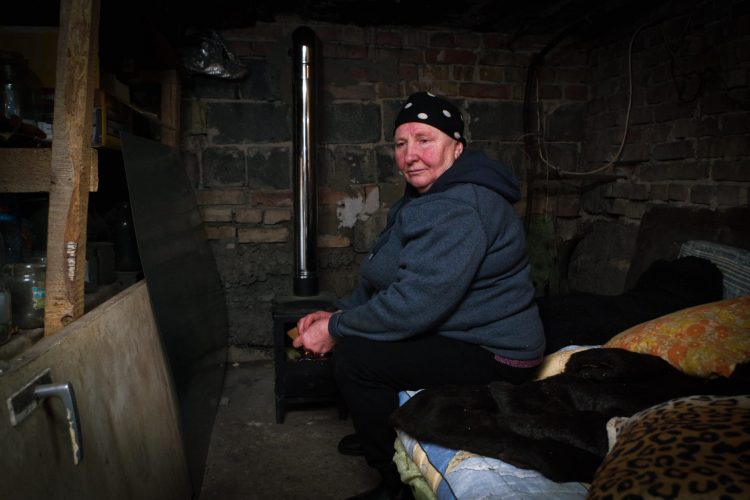


Taking advantage of numerous deep relationships with a number of renown disaster response organizations, the JTI Foundation responded rapidly to the refugee crisis – providing funding support to partners old and new to deliver emergency relief across the border region – and within Ukraine itself.
This has encompassed a range of disaster response interventions – from providing shelter and housing, food and medical aid, psychosocial support, to training local humanitarian organizations, assisting with the processing of refugees, and demining in urban areas. Here is a summary of that support:
ShelterBox UK’s program provided immediate relief to internally displaced people (IDP) in Ukraine, and refugees arriving in Moldova. Over 100,000 people received a combination of support including mattresses to collective centres in Central Ukraine, shelter toolkits to help repair damaged homes and cash assistance to support refugees who had been forced to flee across the border. The JTI Foundation directly supported the distribution of stoves and firewood to over 2,000 people, to help them stay warm and survive the freezing winter months.
RedR UK’s Ukraine Humanitarian Crisis response program develops the skills and knowledge of staff and volunteers working with humanitarian organizations in the field. RedR UK designed 10 priority training modules, rising to 23 by the middle of 2022. Building on the success of the first program, a second phase continued to focus on capacity building. Specifically, this phase aimed to recruit at least 16 local trainers to provide on-demand, accessible and contextualized training to the humanitarian sector in a number of Eastern European languages.
GEA’s response to the crisis in early March 2022 was one of the earliest humanitarian interventions at the Romania-Ukraine border, delivering first-aid and emergency kits, power banks, clothes, food, torches and other essentials to 3,550 refugees. A second phase continued this work, in addition distributing items to improve refugees’ quality of life, including radios, toys, stationery and children’s books.
Habitat for Humanity International’s program in Romania involved two strands – focusing first on the needs of people on the move, and second, on supporting those planning to stay in the country for longer. With the latter in mind, Habitat worked to provide medium- and long-term housing solutions, including the renovation of residential buildings. Habitat also supported central and local governments by providing housing policy expertise.
Caritas began supporting internally displaced people (IDP) in the early stages of the conflict. The organization worked in Ukrainian cities including Kiev, Kherson and Vinnytsya, deploying a network of NGOs and local Caritas branches. Assistance was provided in areas including medical aid and assistance for hospitals, providing shelter and household items, and the delivery of 6,000 food parcels.
Caritas Austria has provided a broad range of relief services to Ukrainian refugees, typically delivered by in-country partner organizations. Its programs have focused on transportation, accommodation, food, water and hygiene services – the latter including psychosocial support – both in Ukraine and neighboring Poland, Slovakia, Moldova and Romania.
The Southeast European Cooperative Initiative (SECI) helped facilitate the establishment of Refugee Support Centers to deliver an array of services to Ukrainian refugees arriving in Hungary, Romania and Moldova. These Centers offered shelter, food, hygiene supplies, emergency first aid and psychosocial support. The program has played a crucial role in bringing together stakeholders including NGOs, local and national governments, and UN agencies – assisting over a million refugees across the region.
MoldovaAID’s program delivered critical humanitarian services to Ukrainian refugees from a network of temporary support centers. The intervention had three principal aims. First, the establishment of support centers in the three main regions of Moldova; and second, delivering services such as legal advice, job-identification, and psychosocial support. Finally, the program delivered food and hygiene packs – the main beneficiaries being Ukrainian women and children hosted by local Moldovan families.
Fondation suisse de déminage (FSD) has worked across Ukraine since 2015. It’s current project, based in Izium in the east of the country, takes a holistic approach to demining in the city. A first strand of work is completing high-level surveys of potentially mined areas; while a second focuses on promoting awareness of the dangers mines pose to the civilian population. The final component covers conventional demining work around some of the city’s key infrastructure and battle zones.